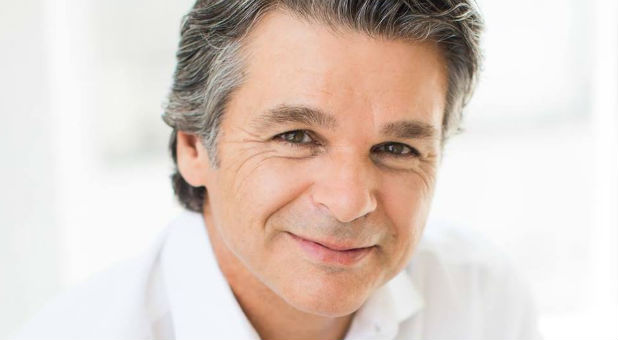What Jentezen Franklin, Harry Jackson and James Robison Told 2,600 People Ready to Change the World
A racially diverse group of evangelical leaders and thousands of Christian followers met with police and community representatives Sunday night to discuss solutions to rising violence in our cities and racial divisions in our country.
An estimated crowd of 2,600 attended The Reconciled Church’s Celebration of Unity Service at Free Chapel’s campus in Gainesville, a suburb located approximately one hour outside of Atlanta.
The Reconciled Church is a movement working to shift the racial atmosphere of the nation by healing the racial divisions in the church. It held its first conference in January 2015 in the wake of police killings of unarmed black men in Ferguson, Missouri and Staten Island, New York. Since then, such incidents have become increasingly common.
Beginning the Sunday evening event with a series of short TED-like talks, leaders discussed generational poverty, violence and race within the context of working with national leaders and partnering together, as a faith body, to enact change.
Bishop Harry Jackson, one of the co-founders of The Reconciled Church movement, said the church must model unity and lead the way to racial reconciliation because America is at a boiling point.
“White folks can’t heal the nation by themselves,” said Jackson, senior pastor of Hope Christian Church in the Washington, D.C., area and chairman of the High Impact Leadership Coalition. “Neither can Blacks or Hispanics. My Asian brothers can’t heal the nation by themselves. Only the body of Christ can bring healing to the nation.”
Evangelist James Robison, another co-founder of The Reconciled Church, urged Christians to pray for our national leaders without expecting them to solve our problems on their own.
“Washington can’t solve our problems,” Robison said. “God can’t fail to solve our problems.”
Jentezen Franklin, senior pastor of Free Chapel, a multi-racial congregation, touched on the topic of immigration. “As a pastor, I love my people,” he said. “I love the Hispanic people in this church. They’re precious, whether they’re legal or illegal. We have to have laws, but we must also have love and compassion.”
Bishop Jackson moderated a panel discussion on practical solutions to community safety and the church’s role in volatile situations. The panelists included Chief Melvin Russell of the Baltimore Police Department; Toni Brinker Pickens, founder of Dallas-based Operation Blue Shield; Charles Flowers, senior pastor of Faith Outreach Center in San Antonio; Bishop Angel Nunez, Bilingual Christian Church in Baltimore; and Kevin Williams, a former corrections officer and chaplain of the Billy Graham Evangelistic Association’s Rapid Response Team.
Chief Russell stressed that law enforcement needs to build stronger relationships with members of the community. “We need to build relational equity,” he said. “We need to be servants instead of occupiers of our communities.”
Similarly, Pickens extolled the virtues of communication. “People want to be heard,” she said. “They want to tell you their experiences. And that sometimes gives you an opportunity to talk about racial issues.”
Flowers said the best time to stop riots is before they start. “Evil reigns because good people do nothing,” he said. “God has called us to be instruments of peace, and we need to serve at the ground level.”
A powerful moment at the end of the service included individuals of all races and backgrounds embracing one another and asking for forgiveness for the past hurts enacted by their respected communities.
Many other prominent Christian and urban leaders participated, including Bishop Wellington Boone, author, speaker and evangelical leader; Dr. Mike Hayes, founding pastor of Covenant Church in Dallas; Dr. Alveda King, pro-life advocate and niece of Dr. Martin Luther King Jr.; Sophia A. Nelson, author, speaker and CNN contributor; Dr. Lance Wallnau, business and political strategist; Dr. Sharon Nesbitt, founding pastor of Dominion World Outreach Ministries; and Lynne Jackson, great-great granddaughter of Dred Scott, a slave who unsuccessfully sued for his freedom in one of the landmark Supreme Court cases of the 19th century. {eoa}














































